Related Research Articles

The Declaration of Sentiments, also known as the Declaration of Rights and Sentiments, is a document signed in 1848 by 68 women and 32 men—100 out of some 300 attendees at the first women's rights convention to be organized by women. Held in Seneca Falls, New York, the convention is now known as the Seneca Falls Convention. The principal author of the Declaration was Elizabeth Cady Stanton, who modeled it upon the United States Declaration of Independence. She was a key organizer of the convention along with Lucretia Coffin Mott, and Martha Coffin Wright.

John Middleton Clayton was an American lawyer and politician from Delaware. He was a member of the Whig Party who served in the Delaware General Assembly, and as U.S. Senator from Delaware and U.S. Secretary of State.

Thomas Clayton was an American lawyer and politician from Dover in Kent County, Delaware. He was a member of the Federalist Party and later the Whig Party. He served in the Delaware General Assembly, as Attorney General of Delaware, as Secretary of State of Delaware, as Chief Justice of the Delaware Supreme Court, as U.S. Representative from Delaware, and as U.S. Senator from Delaware. In 1846 he was one of two members of the United States Senate to vote against declaring war on Mexico.

Dr. Arnold Snow Naudain was an American physician and politician from Odessa in New Castle County, Delaware. He was a veteran of the War of 1812, and a member of the Whig Party, who served in the Delaware General Assembly and as U.S. Senator from Delaware.
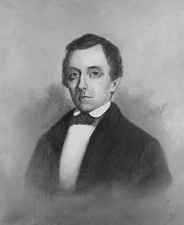
Daniel Rodney was an American merchant and politician from Lewes in Sussex County, Delaware. He was a member of the Federalist Party, and later the National Republican Party, who served as Governor of Delaware, U. S. Representative from Delaware and U.S. Senator from Delaware.
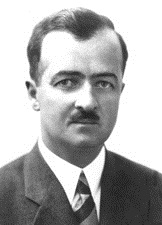
Clayton Douglass Buck was an American engineer and politician from New Castle Hundred, New Castle County, Delaware. He was a veteran of World War I and a member of the Republican Party, who served two terms as governor and one term as U. S. Senator from Delaware. He was known by his middle name.

Charles Polk Jr. was an American farmer and politician from Big Stone Beach, in Milford Hundred, Kent County, Delaware. He was a member of the Federalist Party, and later the Whig Party, who served in the Delaware General Assembly and twice as Governor of Delaware.
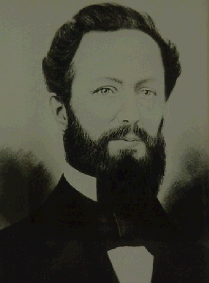
William Temple was an American merchant and politician from Smyrna, in Kent County, Delaware. He was a member of the Whig Party, and later the Democratic Party, who served in the Delaware General Assembly, as Governor of Delaware, and as U.S. Representative from Delaware. He is the youngest governor to serve in Delaware in all of its history.

Dr. Joshua Clayton was an American physician and politician from Mt. Pleasant in Pencader Hundred, New Castle County, Delaware. He was an officer of the Continental Army in the American Revolution, and a member of the Federalist Party, who served in the Delaware General Assembly, as Governor of Delaware and as U.S. Senator from Delaware.

The Rodney family of Delaware was a prominent family of farmers and politicians in Kent County and Sussex County, Delaware. It includes a Signer of the Declaration of Independence, a member of the Continental Congress, three Governors of Delaware, a United States Senator, and two United States Representatives.
The Delaware Constitution of 1792 was the second governing document for Delaware state government. The Constitution was in effect from its adoption, on June 12, 1792, until it was replaced, on December 2, 1831, by a new Constitution.

Edward Shippen was the second mayor of Philadelphia, although under William Penn's charter of 1701, he was considered the first.
Dr. Henry Molleston, III was an American physician and politician from Dover, in Kent County, Delaware. He was a member of the Federalist Party, who served in the Delaware General Assembly, and was elected Governor of Delaware, but died before taking office.
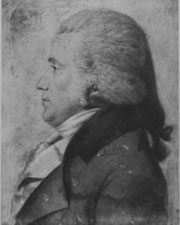
William Hill Wells was a lawyer and politician from Dagsboro, in Sussex County, Delaware. He was a member of the Federalist Party, who served in the Delaware General Assembly and as U.S. Senator from Delaware.

St. Paul's Protestant Episcopal Church is a historic Episcopal church located at 122 East Pine Street in Georgetown, Sussex County. The congregation started in 1794 but this brick building was completed in 1844. It was remodeled in 1881 by McKim Mead and White of New York City in the early Victorian Gothic style. This is one of the 38 parish churches of the Episcopal Diocese of Delaware, and it is listed on the National Register of Historic Places. Many statesmen from Sussex County are interred in the churchyard, including Caleb R. Layton, Daniel J. Layton, Charles C. Stockley and others.
Thomas Wynne was personal physician of William Penn and one of the original settlers of Philadelphia in the Province of Pennsylvania. Born in Ysceifiog, Wales, where his family dated back seventeen generations to Owain Gwynedd, he accompanied Penn on his original journey to America on the ship Welcome.
Joshua Fisher was a prominent Philadelphia merchant involved in transatlantic trade and mapmaking as applied to nautical charts. He made the first nautical chart of the Delaware River and Delaware Bay, and established the first merchant packet line between London and Philadelphia.
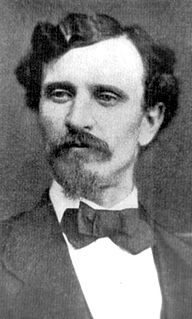
John Middleton Clayton was an American politician who served as a Republican member of the Arkansas House of Representatives for Jefferson County from 1871 to 1873 and the Arkansas State Senate for Jefferson County. In 1888, he ran for a seat in the United States House of Representatives but lost to Clifton R. Breckinridge. Clayton challenged the results and was assassinated in 1889 during the challenge to the election. He was declared the winner of the election posthumously. The identity of his assassin remains unknown.
William Biles was an American judge, attorney, legislator, sheriff, land speculator and merchant. Born in England and educated in law, Biles brought his family to America in 1679 and settled in what would become Falls Township, Bucks County, Pennsylvania, before the charter of William Penn. The Biles family had been persecuted for their religious dissension in England, and William became a prominent Quaker minister. "After the withdrawal of the Declaration of Indulgence dissenters were more often punished for being absent from their parish churches... Quakers were always fair game and in the following spring (1674) two of them, William Biles and Thomas Strong, were presented at the Assizes." Presumably punishment for being absent from their parish church and attending Quaker ceremonies.
The Bustill family is a prominent American family of largely African, European and Lenape Native American descent. The family has included artists, educators, journalists and activists, both against slavery and against Jim Crow.
References
- Scharf, John Thomas (1888). History of Delaware 1609-1888. 2 vols. Philadelphia: L. J. Richards & Co.
- Conrad, Henry C. (1908). History of the State of Delaware, 3 vols. Lancaster, Pennsylvania: Wickersham Company.